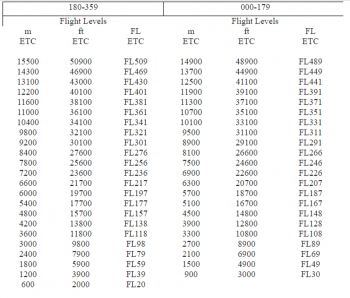VVVV Hanoi FIR
Xin Chao - Hello and Welcome to Vietnam
Welcome to HaNoi Flight Infomation Region (FIR) Wiki Page for Vietnam Airspace, part of the IVAO XE East Asia Region Division! These sets of pages should help provide you with all the information you need while controlling HaNoi Airspace
Note: Please keep in mind, IVAO stresses that our network is at global peace without any conflicts between nations. We also strive to simulate realism. So, while it is ok to respect the prohibited airspace at the DMZ between the DPRK and ROK, on IVAO, direct flights are permissible between the two nations. At no time shall any war simulation be performed in Korean airspace as this is a huge violation against IVAO rules and regulations. That being said, enjoy HaNoi Control
Contents
Sector File
Change Log:
- Created Sector File
HaNoi Control
Here are the lists of valid center positions IVAO XE authorizes in HaNoi Airspace
All radio callsigns are "HaNoi Control" regardless of sector.
| Sector Position | Callsign | Frequency | Coverage Area |
|---|---|---|---|
| HaNoi Control High | VVVV_CTR | 123.300 | Primary, High Sector above FL190 when other sectors online. Covers entire FIR when other sectors offline |
| HaNoi Control North | VVVV_1_CTR | 132.300 | North Sector, Covers North of Hanoi FIR from VVNB-VVCI-VVVD-VVDB |
| HaNoi Control Middle | VVVV_2_CTR | 133.650 | Middle Sector, Covers Middle of Hanoi FIR |
| HaNoi Control South | VVVV_3_CTR | 125.900 | South Sector, Covers South of HanoI FIR |
En Route and Cruise
RVSM Airspace
Hanoi FIR has RVSM Airspace From FL190 to FL410 and as such follows standard semi-circular rules in feet (FL).
360-179 odd flight levels (ex. FL290, FL310, FL230)
180-359 even flight levels (ex. FL300, FL240, FL380)
Transition Altitude
All of Hanoi FIR Airports has a transition altitude of 18000 feet and transition level of FL100.
Hanoi FIR uses QNH (standard 1013 hectopascals or miilibars)
Transponder Codes
En route transponder codes range from 3200-3277
Domestic Departures and Arrivals will get a range of 6000-6777
International Departures and Arrivals will get a range of 5000-5777
Avoid using squawk codes beginning with 40xx,00xx,20xx these are reserved for Vientlane, Sanya, Kumming FIR
China LOA and Meters
All handoffs to Chinese airspace will be given to Sanya Control (ZJSA_CTR),Kumming Control (ZPKM_CTR) and Guangzhou Control (ZGZU_CTR) on an airway at 8 waypoints and at a meters flight level to meet Chinese RVSM airspace requirements.
Traffic routed North will be on the W22,W6,R471 airways and a handoff shall be initiated by LAOCI, KATBO
Traffic routed West will be on the W10 and A202 airway and a handoff shall be initiated by ASSAD, BALOV
Traffic routed North West will be on the R474 airway and a hand off shall be initiated by TEBAK
All aircraft entering Chinese airspace must be assigned a meters altitude by Ho Chi Minh control prior to initiating a handoff to Sanya,Kumming and Guangzhou or sent to UNICOM. Use the chart below to match the nearest meters level to the flight level they are cruising at or filed in Korean airspace. For example, if they are cruising at FL360, assigned 11,000 meters which will translate to FL361/36,100ft. When an aircraft enters Korean airspace from China, assign a cruise flight level nearest to their meters level as Chinese controllers normally do not assign a FL prior to handing off to Vietnamese controllers.
Standard Arrivals and Departures
VVNB NoiBai Intl
The followings are the STAR's to be assigned for aircraft arriving into Tansonhat International Airport in NoiBai (Hanoi).
VVNB SID and STAR Charts You can read it for more details
| Identifier | Name | Frequency |
|---|---|---|
| VIN | VINH (VVVH) | 113.1 |
| NAH | NAMHA | 115.5 |
| CBI | CATBI (VVCI) | 117.4 |
| VDO | VANDON | 115.4 |
| NOB | NOIBAI (VVNB) | 116.1 |
| VPH | VINHPHUC | 113.9 |
| DIB | DIENBIENPHU | 113.6 |
| DOH | DONGHOI (VVDH) | 116.2 |
